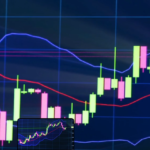Forex trading is an exciting and potentially lucrative pursuit, but it also comes with its own unique set of psychological challenges. For many traders, staying disciplined can be a difficult task.
This article examines the psychology behind forex trading and offers tips for staying on track when faced with temptation.
I have seen firsthand how emotional impulses can derail even the most well-thought out strategies; yet there are ways to stay focused and remain disciplined no matter what the market throws your way.
In this article we’ll look at some of the psychological pitfalls that traders face and explore practical solutions for curbing impulsivity in order to achieve long term success.
Understanding The Psychology Of Trading
 The psychology of forex trading is a complex and often overlooked aspect of successful trades. The mindset of the trader plays an important role in their success, as it can be easy to get caught up in the excitement or fear associated with each trade.
The psychology of forex trading is a complex and often overlooked aspect of successful trades. The mindset of the trader plays an important role in their success, as it can be easy to get caught up in the excitement or fear associated with each trade.
It’s essential that the trader has mental discipline when entering into any position – this means having confidence in your decisions, understanding what you want from the market, and not letting emotions affect your judgement.
Having a positive approach towards trading will help maintain focus on long-term goals rather than short-term gains. The best traders are those who have learned how to manage risk effectively and take losses without feeling too much emotion. Additionally, they understand that successful trading requires self-control; knowing when to enter and exit positions based on sound logic instead of relying solely on gut feelings or intuition.
Successful trading also involves being able to adjust strategies quickly when markets change, while still maintaining control over one’s emotions throughout the entire process – regardless if profits are made or lost.
To achieve this level of consistency takes time and dedication, but ultimately could make all the difference between profitable trades and unsuccessful ones. Ultimately, developing a clear strategy focused on long-term objectives combined with strong emotional control is key for achieving success in forex trading.
Identifying And Managing Emotions
Trading in the forex market can be an emotionally charged experience. As a result, it is essential that traders learn to identify and manage their emotions in order to stay disciplined throughout trading sessions.
Fear and greed are two of the most common emotions experienced by traders; however, with proper understanding of these feelings and how they influence decisions, one can maintain discipline when needed.
Fear is often thought of as an impediment to success in the markets, but if it’s managed correctly fear can actually benefit your trading. It helps keep traders from taking on excessive risk which could lead to large losses or missed opportunities due to hesitation. The key is setting realistic goals and objectives while staying mindful of what you want out of any given trade. This way, fear won’t get in the way of executing trades based on sound strategy rather than emotion alone.
Greed also plays into our decision making process when trading forex; we may take too much risk hoping for bigger profits even though this goes against our established plan or risk-reward ratio. To avoid being overly influenced by greed, remind yourself why you’re investing in the first place: long term returns rather than short term gains. Greed should not determine whether you enter or exit a trade; instead focus on patience and practice until such time when all involved variables have been taken into account before deciding upon actionable steps towards profitability.
By being aware of both fear and greed within ourselves, we have greater control over our own behavior – allowing us to become better equipped at managing our psychology throughout each trading session. With this knowledge comes increased confidence in our ability to make rational decisions without succumbing to strong emotional pulls.
Implementing Risk Management Strategies
Now that we have identified and managed our emotions, it is time to move on to the next step: implementing risk management strategies. Practicing discipline in forex trading starts with managing your risk appropriately. Risk management can be a difficult task for traders because of their reliance on intuition or past experience to make decisions. However, if traders are willing to take the time and effort to understand risk management principles and practice them regularly, they will soon realize that disciplined trading offers greater rewards than gambling.
When it comes to managing risk effectively, there are a few key points that should always be taken into consideration:
– Set realistic goals – Before entering any trade, consider how much you stand to gain from the position as well as how much you’re willing to lose. Setting these limits upfront helps maintain an objective outlook when executing trades.
– Diversify investments – Don’t put all your eggs in one basket; diversifying across different asset classes allows for safer exposure across markets which could reduce losses significantly during volatile times.
– Leverage wisely – Applying leverage can magnify profits but also increase potential losses so use only what you need and never exceed your level of comfort with leveraged positions.
– Monitor portfolios frequently – Regularly monitoring open positions provides traders with crucial information needed to adjust current strategies or exit losing trades before further damage is done.
By following these tips and understanding some basic risk principles, traders can become more confident in their decision making while still maintaining control over their trading account. With proper planning and commitment, any trader has the ability to stay disciplined in order create long term success in Forex Trading!
Setting Objectives And Measuring Performance
Trading forex can be an incredibly rewarding experience, but it’s important to remember that success doesn’t come easy. To become a consistently profitable trader, you must take the time to set realistic goals and properly track your progress in order to stay on track. When traders fail to do this, they often risk falling into a cycle of unfulfilled expectations and disappointment.
The first step towards achieving success is setting objectives that are attainable but still challenging enough to push yourself further than before. It’s critical to create achievable targets so you don’t become overwhelmed or discouraged when things don’t go as planned.
Setting smaller goals also makes it easier for you to measure your performance over time and make adjustments where needed. Managing expectations appropriately is essential if you want to improve your trading results. Unrealistic demands will only lead to frustration and anxiety which could have an adverse effect on your overall performance.
Instead, focus on creating reasonable objectives with clearly defined milestones along the way that allow you to monitor your progress accurately; this will help keep you motivated even during tough times. In short, tracking progress and managing expectations are two key components of staying disciplined while trading forex successfully.
Developing A Trading Plan And Adhering To It
Developing a Trading Plan and Adhering to It is essential for successful Forex trading, as it serves as the foundation of your trading journey. Having an organized plan in place can help you stay disciplined and follow through on trades with conviction.
Your trading plan should include:
- Your risk appetite – How much capital are you willing to risk?
- Your trading ethics – What values will guide your decisions?
- Your goals – What do you hope to accomplish from trading?
- Your exit strategy – When would you consider exiting a trade?
- Money management rules – Do you have any limits on position size or leverage?
These components come together to form the basis of your approach. Once established, regularly review them to ensure they still meet your needs.
Ultimately, having a robust plan helps minimize emotions that could interfere with effective decision making. In addition, having consistent criteria for entering and exiting trades makes it easier for traders to stick with their plans long term.
What Are The Best Technical Indicators To Use When Forex Trading?
It’s no secret that technical indicators are a key component of successful forex trading.
In fact, 90% of traders cite technical analysis as their primary decision-making tool when entering the market!
When it comes to choosing which indicators will work best for your style and strategy, you’ll want to focus on price action, breakout trading, and momentum oscillators.
These tools can help identify potential reversals or breakouts in the chart patterns so you can make informed decisions about when to enter or exit a trade.
Remember that staying disciplined is just as important if not more than having the right indicator set up.
What Are The Most Common Mistakes Made By Forex Traders?
When it comes to forex trading, one of the most common mistakes traders make is investing emotionally.
When trading with market psychology rather than logic and reason, traders often end up making decisions that do not align with their original goals and objectives.
To stay disciplined in forex trading, it’s important for traders to keep emotions out of the equation as much as possible.
Having a clear understanding of risk versus reward can also help prevent costly missteps along the way.
What Strategies Should I Use To Limit My Risk When Trading?
When trading forex, risk management is paramount.
To limit your risk when trading, it’s important to understand and manage your emotions as well.
This means taking the time to develop a plan for how you’ll respond to different market conditions and sticking with that plan no matter what happens.
Developing strategies around understanding and managing your emotions will help ensure that you remain disciplined in your trading decisions and protect yourself from potential losses.
What Is The Most Efficient Way To Track My Trading Performance?
Tracking your trading performance is a psychological game, and let me tell you, it can be exhausting! It’s almost like asking the universe to spell out its plans for you.
But if you have an effective strategy planning process in place as well as risk management methods that are tailored to fit YOUR individual needs then tracking your performance doesn’t have to feel so daunting.
A great way to start is by setting yourself targets month-on-month and tracking how close you come to achieving them each time – think of it as a challenge or even a competition with yourself, because ultimately self discipline will lead the way towards increased profits.
How Much Capital Should I Allocate To Forex Trading?
When it comes to allocating capital for forex trading, traders should take into account their risk profile and psychological barriers.
I often advise my clients to start slow with an amount of money they are comfortable losing if things don’t go as planned.
This helps to manage expectations and protect your mental health by avoiding extreme losses that can cause irreversible damage psychologically.
The psychology of forex trading is just as important as understanding technical indicators and strategies.
Research has found that nearly 80% of traders fail to stay disciplined when it comes to risk management, resulting in costly mistakes.
That’s why I cannot emphasize enough how crucial it is for a trader to track their performance regularly, allocate adequate capital and stick to predetermined risk limits.
If you are determined to become successful at forex trading, make sure you practice self-discipline and remain focused on your goals!








